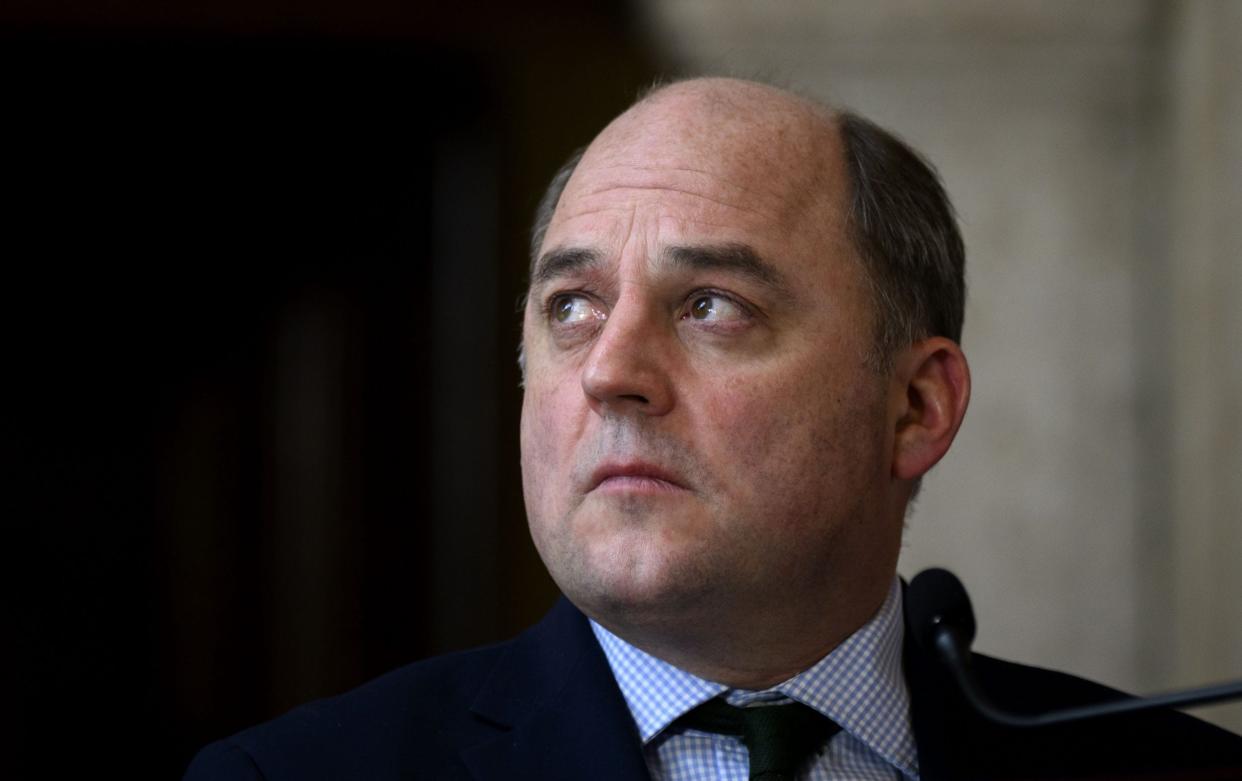If the EU commands defence procurement, Russia will cheer

- Oops!Something went wrong.Please try again later.
If Vladimir Putin had devised a diabolical plan to derail the West’s support for Ukraine, he could hardly have done a better job than the blinkered bureaucrats of Brussels.
Just as Ukraine faces its most perilous moment since the Russian invasion a year ago, the EU risks ruining Western unity by shutting others out of its centralised arms procurement policy.
Having contributed nothing to the Ukrainian war effort, Brussels is eager to expand its strategic role at the expense of the only international institution that has been effective: Nato.
Ben Wallace sounded the alarm about this EU power grab when he met other Nato defence ministers in Brussels last week. The Defence Secretary delivered a stark warning against the plan to prioritise EU arms industries. He reminded the allies that the UK and Norway, though outside the European Union, were still front-rank European powers, with a key role in defence supply chains.
There is no mistaking the urgency of Mr Wallace’s warning. At this weekend’s Munich Security Conference, Rishi Sunak is warning Nato leaders to “double down” on military aid to Kyiv. In Ukraine the long-awaited Russian spring offensive may already have begun. With the war entering a new phase, this is no time for Brussels bureaucrats to throw a spanner into the delicate works of the Atlantic alliance.
The EU plan would involve large loans from the European Central Bank (ECB). The hope is to incentivise arms manufacturers to step up production and replenish equipment sent to Ukraine. With a bonanza in the offing, the most protectionist member states, such as France, Italy and Spain, are pressing for an armaments programme that benefits their industries. Brussels hopes to capitalise on the Ukrainian war to centralise its control of arms procurement, just as the Covid pandemic enabled it to centralise that of vaccines.
Hence the Defence Secretary’s unusual decision to fire a shot across the EU’s bows by going public. If member states’ procurement decisions are centralised and bankrolled by the ECB, the impact on Nato would be politically divisive and militarily destructive. It would cut out British and other non-EU manufacturers and subordinate strategic requirements to political considerations.
The British fear that it would also sabotage Nato’s long-standing attempt to standardise its equipment. Any rationalisation of procurement should be based on the quality of the kit, not whether it was a product of the EU.
Underlying the dispute is a strong suspicion that the top priority of officials in Brussels is not to improve Nato’s military capabilities, still less to save Ukraine from the impending Russian onslaught. Rather, the EU is exploiting the war to do what it does best: extend its own power.
As in the pandemic, so with Ukraine the EU establishment has drawn the wrong lesson: that its institutions are superior to and should replace those of nation states. The opposite is true.
It was the British nation state whose vaccination programme shone by comparison with the failure of the EU’s. When the Russians marched on Kyiv a year ago, the Ukrainian nation state covered itself with glory, while the “post-national” EU gestured from the sidelines.
The international organisation that has made a decisive contribution to the resurgence of Ukraine is not the EU but Nato, an alliance of nation states.
It is hard to see how giving the EU a dominant role in defence procurement can do anything other than delay the delivery of tanks, artillery, planes, missiles, ammunition and other war materiel to the battle front.
A year ago, Mr Wallace’s warnings that Putin would invade were proved right, while European leaders were wrong-footed. This time, they should heed his warning. The EU should leave defence procurement to Nato – or risk a Russian victory.

